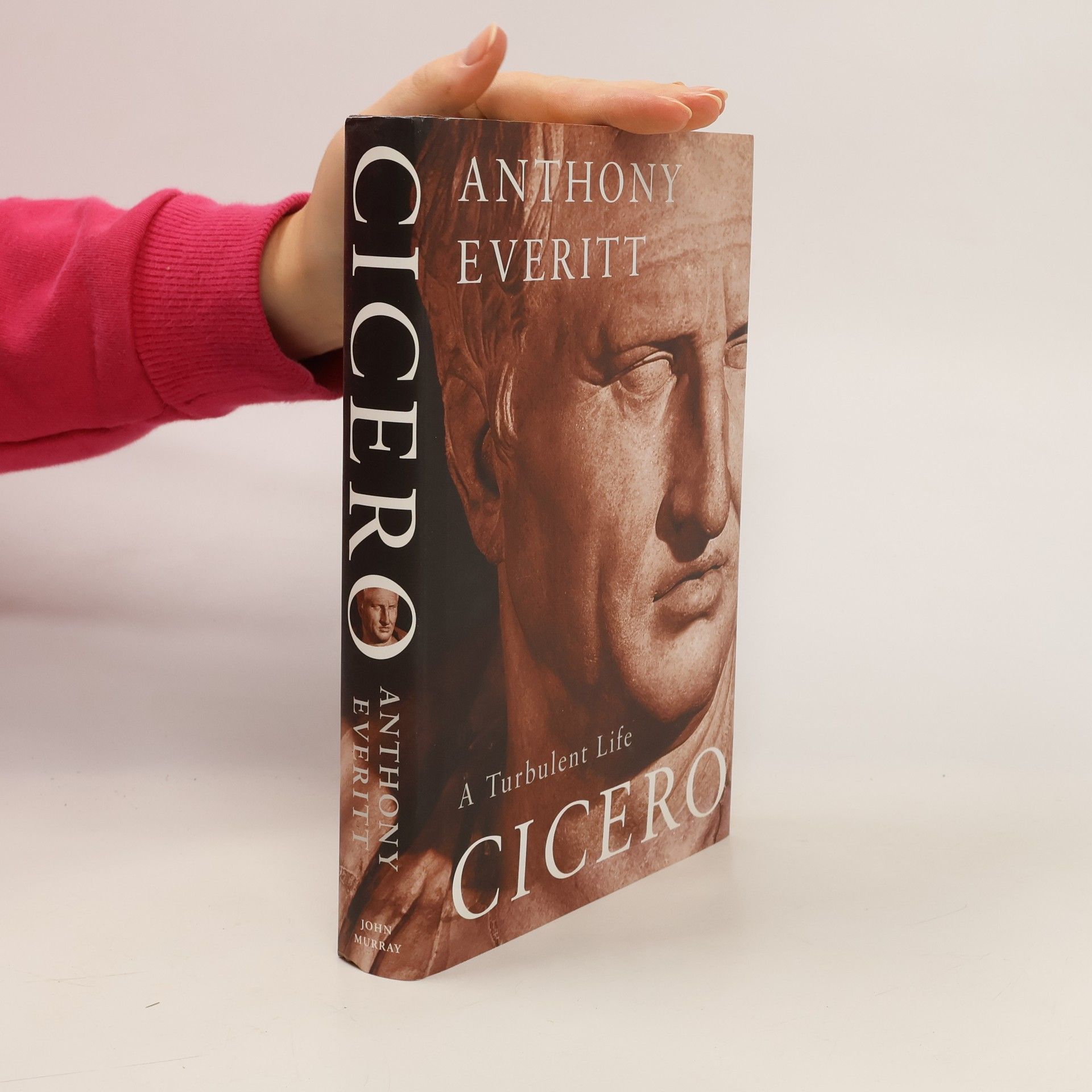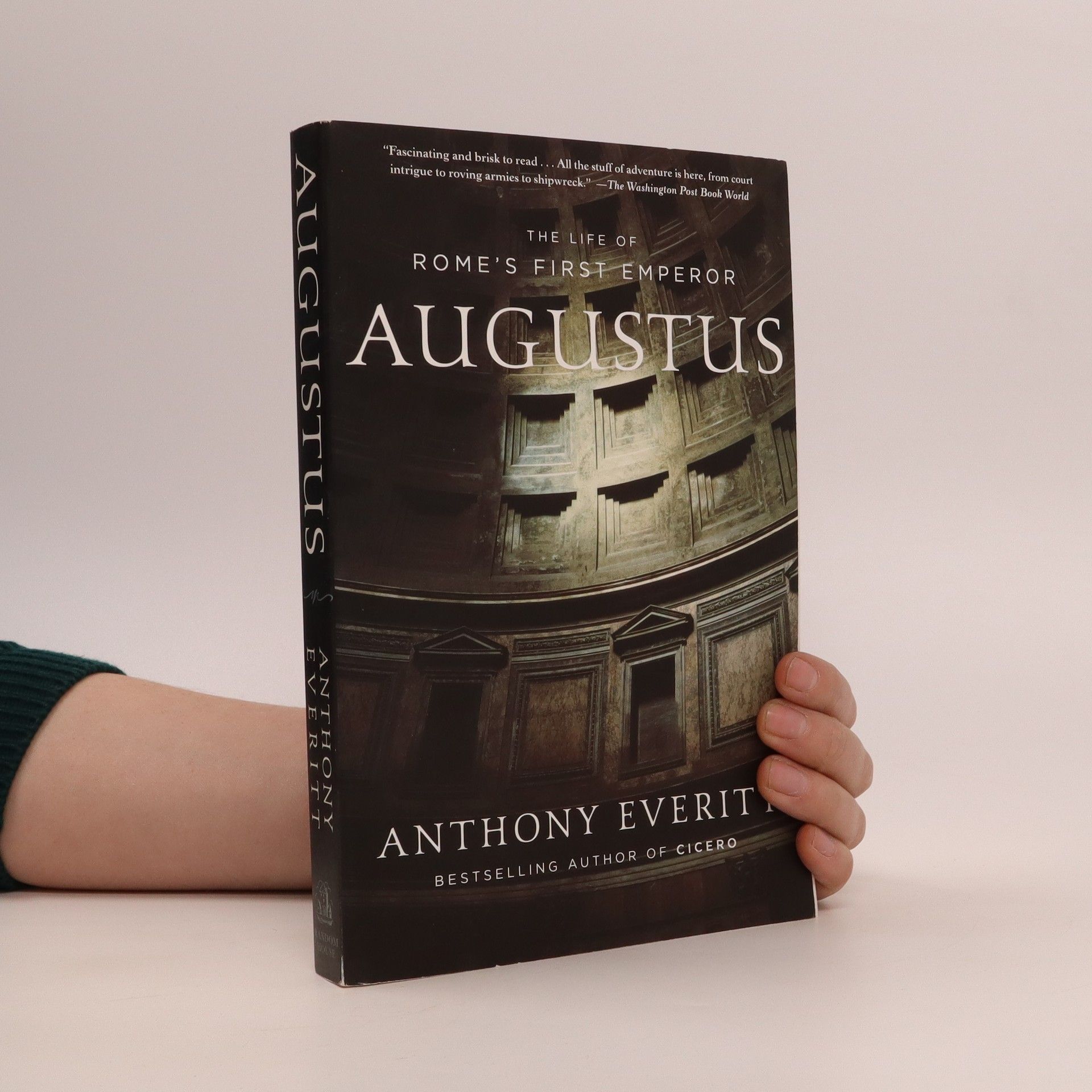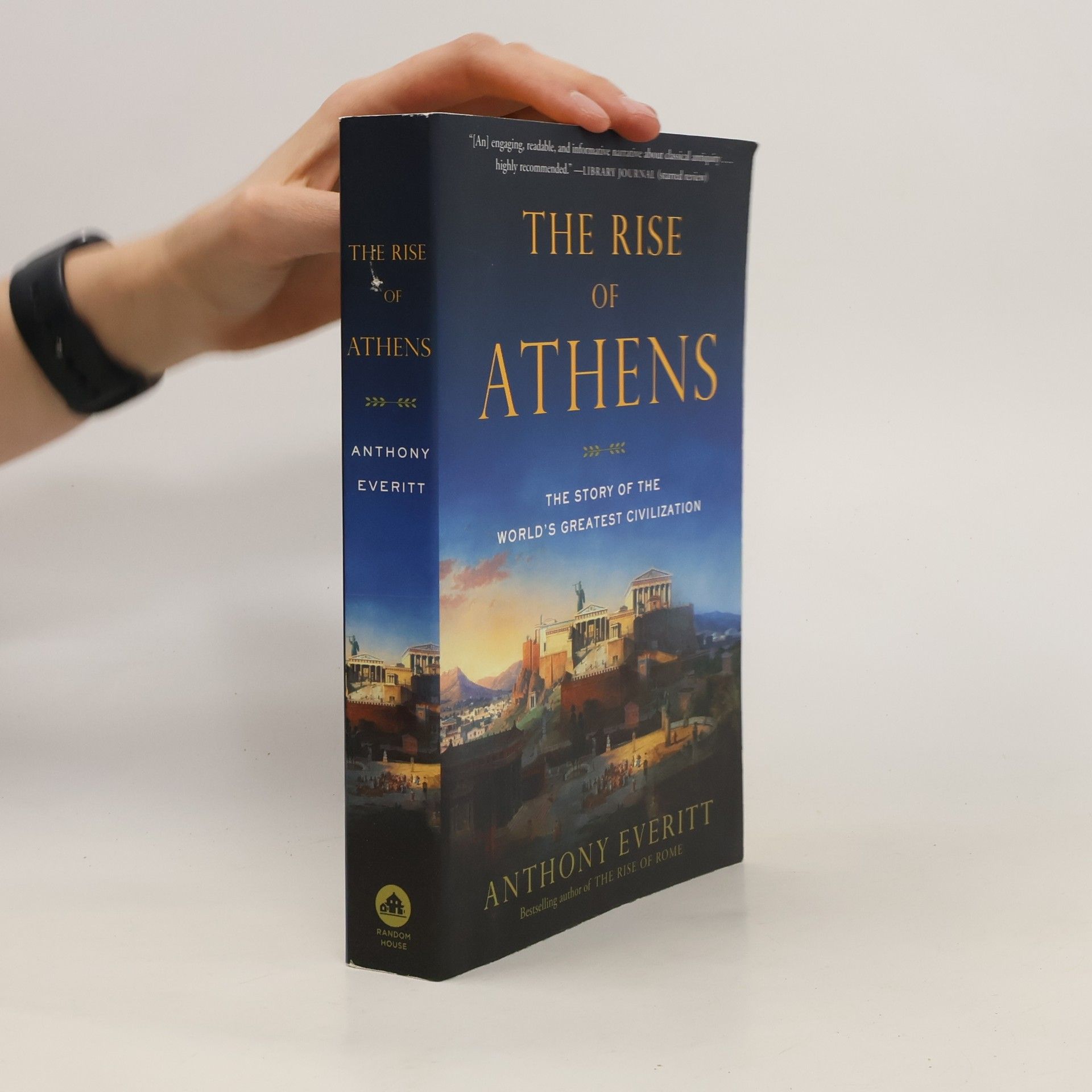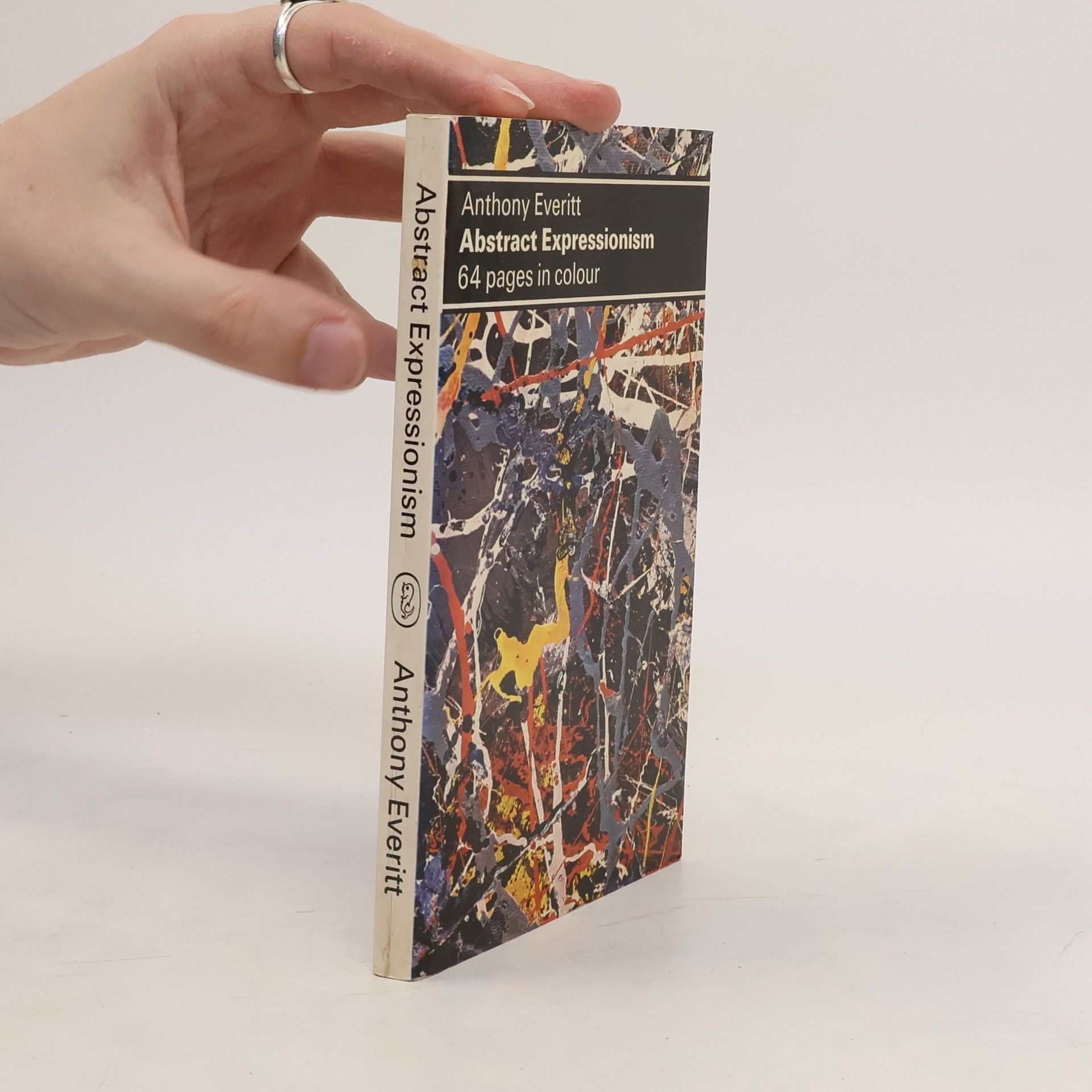He found Rome made of clay and left it made of marble. As Rome's first emperor, Augustus transformed the unruly Republic into the greatest empire the world had ever seen. His consolidation and expansion of Roman power two thousand years ago laid the foundations for all of Western history to follow. Yet despite Augustus's accomplishments, very few biographers have concentrated on the man himself, instead choosing to chronicle the age in which he lived. In this study of power and political genius, biographer Everitt gives an intimate account of his illustrious subject. He takes some of the household names of history--Caesar, Brutus, Cassius, Antony, Cleopatra--and turns them into flesh and blood. At a time when many consider America an empire, this portrait of the greatest emperor who ever lived makes for enlightening reading.--From publisher description
Anthony Everitt Livres
Anthony Everitt est un auteur britannique distingué dont la formation universitaire en littérature anglaise a nourri son profond engagement envers les arts. Il possède une profonde connaissance de l'histoire romaine, mise en valeur à travers des biographies captivantes et des analyses historiques qui éclairent le monde antique. Les écrits d'Everitt, fréquemment publiés dans des journaux de premier plan, témoignent d'un intellect vif et d'une capacité à relier les perspectives savantes à un large public. En tant qu'intellectuel et éducateur respecté, il contribue de manière significative au paysage culturel grâce à sa riche expérience et à ses commentaires perspicaces.






Cicero. A Turbulent Life
- 346pages
- 13 heures de lecture
"This is the biography of a brilliant orator and writer, and a politician who twice held the reins of power." "Cicero's speeches and ideas have influenced European civilized values for two thousand years. Personally, he is accessible to us in his hundreds of letters, many of them to his dear friend Atticus. We can follow his busy life as a lawyer and politician, and the historic events in which he took part, from day to day (sometimes from hour to hour) as he nervously prepares a speech to deliver in the Forum or to the Senate, detects the supposedly incorruptible Brutus in a financial scam, puts a stop to a sexual escapade of the young Mark Antony, steadies Rome at a moment of acute vulnerability following Julius Caesar's assassination, vainly tries to prevent civil war ... or at more private moments, as he entertains dinner parties with his wit or irons out a problem with his wayward nephew." "In this account of Cicero's career, from his provincial origins to his tragic end, as the Republican cause he revered crashed round his ears, Anthony Everitt makes full use of Cicero's own words and those of his contemporaries."--BOOK JACKET.Title Summary field provided by Blackwell North America, Inc. All Rights Reserved
An acclaimed biographer reconstructs the life of Alexander the Great in this magisterial revisionist portrait. Everitt judges Alexander's life against the criteria of his own age and considers all his contradictions.
Hadrian and the Triumph of Rome
- 448pages
- 16 heures de lecture
Acclaimed author Anthony Everitt presents a compelling biography of Hadrian, arguably Rome's most successful emperor, in the first major account of his life in nearly a century. Born in A.D. 76, Hadrian ruled during a tumultuous period marked by the opening of the Colosseum and the eruption that buried Pompeii. Everitt vividly recounts how Hadrian brought a century of disorder and warfare to a peaceful conclusion, demonstrating that monarchy can coexist with effective governance. Known for his bravery and intellect, Hadrian was also an accomplished huntsman, poet, and philosopher. His reign was defined by two pivotal decisions: halting Rome's territorial expansion, which had become economically unfeasible, and establishing Athens as the empire's cultural center, elevating Greek art and learning in Roman life. Everitt delves into Hadrian's private life, including his loveless marriage to Sabina and his passionate yet tragic relationship with Antinous, a beautiful young Bithynian man. The biography also addresses Hadrian's war against the Jews, which has lasting implications for modern-day conflicts in the Middle East. Utilizing newly discovered archaeological evidence and thorough research, Everitt sheds light on Hadrian, one of history's most enigmatic figures.
Rome's decline and fall have long fascinated historians, but the story of how the empire was won is every bit as compelling. Emerging as a market town from a cluster of hill villages in the eighth and seventh centuries B.C.E., Rome grew to become the ancient world's preeminent power. Historian Anthony Everitt fashions the story of Rome's rise to glory into an erudite page-turner filled with lessons for our time. He paints indelible portraits of the great Romans--and non-Romans--who left their mark on the Roman world. He chronicles the clash between patricians and plebeians that defined the politics of the Republic. He shows how Rome's shrewd strategy of offering citizenship to her defeated subjects was instrumental in expanding the reach of her burgeoning empire. And he outlines the corrosion of constitutional norms that accompanied Rome's imperial expansion, as old habits of political compromise gave way, leading to violence and civil war. In the end, unimaginable wealth and power corrupted the traditional virtues of the Republic, and Rome was left triumphant everywhere except within its own borders.--From publisher description
Nero
- 400pages
- 14 heures de lecture
The Roman emperor Nero is often viewed as the archetype of a bad ruler—cruel, vain, and incompetent. He committed incest with his mother, who had orchestrated his rise to power, and later murdered her. Infamously, he allegedly set fire to Rome while playing his lyre and subsequently constructed a grand palace on the ruins. Historians of his time despised him, and their negative accounts have persisted through history. Yet, a mystery lingers: after his downfall and suicide, flowers were mysteriously placed on his grave, suggesting he was loved by some. In this nuanced biography, Anthony Everitt explores the contradictions of Nero's reign, offering a fresh perspective on his life. He vividly depicts ancient Rome, from its crowded streets prone to fires to the political intrigues that could be deadly. Despite his heinous acts, Nero managed the empire effectively, achieving diplomatic success with the Parthian empire and overseeing the conquest of Britain, alongside the revolt of British queen Boudica. A patron of the arts, Nero had a passion for music and won the loyalty of the lower classes through grand spectacles. He envisioned a future for Rome, but his insecurities and guilt over his violent actions may have hindered his ability to lead.
Cicero
- 400pages
- 14 heures de lecture
A portrait of the Roman politician describes the life and times of the ancient statesman, based on the witty and candid letters that Cicero wrote to his friend Atticus in which he described the events and personalities that shaped the final days of Republican Rome
Exploring the remarkable rise of a small city-state in ancient Greece, this account delves into how it transformed into one of history's most significant civilizations. The author, known for acclaimed biographies of notable figures like Cicero, Augustus, and Hadrian, provides a detailed narrative that highlights the cultural, political, and social dynamics that contributed to this extraordinary journey. The book offers insights into the unique aspects that set this civilization apart and its lasting impact on the world.
Abstract Expressionism
- 64pages
- 3 heures de lecture
Book by Everitt, A.


